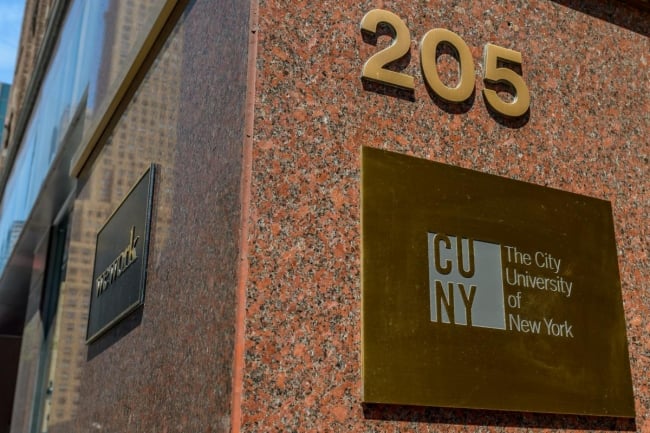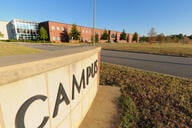You have /5 articles left.
Sign up for a free account or log in.

Getty Images
The City University of New York system is working to add new courses this spring in data analytics and cybersecurity. The system hopes to launch eight new courses and revise one older one under the guidance of companies that are part of Business Roundtable, a nonprofit association of CEOs. Four community colleges and three senior colleges, including Brooklyn College, Baruch College and York College, will be offering the courses.
Angie Kamath, dean of continuing education and workforce development at CUNY, said the process started with focused conversations between faculty members and industry advisers from Business Roundtable companies, such as IBM and JP Morgan Chase.
Professors who had ideas for new or revised curricula in data analytics and cybersecurity applied for grants from the system. Winning teams or individuals received a monetary grant (to defray the cost and time of course design) and advisement from a subject-matter expert from Business Roundtable partner companies. The monetary award was funded by CUNY and corporate sponsors.
“We didn’t want this to be a partnership with industry that was just industry talking to faculty about what has to change,” Kamath said. “We really were having faculty define how they wanted to work with industry.” The collaboration will hopefully be long-term, she said, leading perhaps to industry partners coming in as guest speakers and getting to know students personally.
Data analytics and cybersecurity were chosen as subject areas because company officials identified those as “pain points” in hiring, Kamath said.
“It’s not that educational institutions are not keeping pace,” she said. “Advancements in the technology are changing so quickly that businesses wanted to work directly with universities to be able to have a really strong feedback loop and communication mechanism established.”
At Brooklyn College, faculty members applied to create a course that will be an introduction to data analytics and data visualization in the social and behavioral sciences. At Queensborough Community College, advisers from IBM are working with professors to revise a statistics course and incorporate tools more appropriate for data science, such as Python and R computing languages.
“The work in the CUNY partnership was really about helping to find ways to drive course work that’s more relevant for current jobs,” said Kelli Jordan, director of careers and skills at IBM. “When we think about not only the skills crisis we have today with the thousands of open jobs and not enough graduates and people in the workforce to fill them, we’ve also got quite a volume of open jobs that are sitting right in the New York City area.”
More and more companies are investing in higher education and attempting to influence course content to be more industry-aligned. Companies often assert that a “skills gap” -- between what graduates are proficient in and what employers want -- is the cause of thousands of unfilled jobs.
The veracity of that assertion has been the subject of some debate. Skills gap skeptics, such as economist Paul Krugman, often say unfilled jobs are instead the result of stagnant wages and employers who decline to train new workers. A research paper by three economists that was published earlier this year suggested that when unemployment was high and workers were plentiful during the financial crisis, employers’ hiring requirements got more stringent. When unemployment fell, employers were more willing to hire candidates without certain skills or qualifications.
Still, some surveys suggest that 90 percent of hiring managers find it difficult to find and hire tech talent. And though scores are up, less than half of New York City’s third through eighth graders passed the state math exam. That number aligns with the New York State average.
What is not disputed is that tech jobs are growing in the city. The sector grew by 80 percent in NYC during the last decade, to over 142,000 jobs. Though the business, leisure, hospitality and health-care sectors are larger and added more jobs in those 10 years, many of those roles come with salaries below the city’s annual average of $89,800. For jobs in technology, the citywide average salary was over $152,000 in 2017.
As the city has become wealthier, people who grew up in the five boroughs, like many CUNY students, have reported that they can’t afford to move back to their childhood neighborhoods.
“It’s really important that we drove this from where there are growth jobs and growth sectors in New York,” Kamath said.
(Note: A previous version of this article misstated which senior CUNY colleges will be offering these new and revised courses. Brooklyn College will be. Queens College will not be. A previous version of this article also misstated which college an IBM-influenced statistics course will be offered. It is Queensborough Community College, not Baruch College.)




